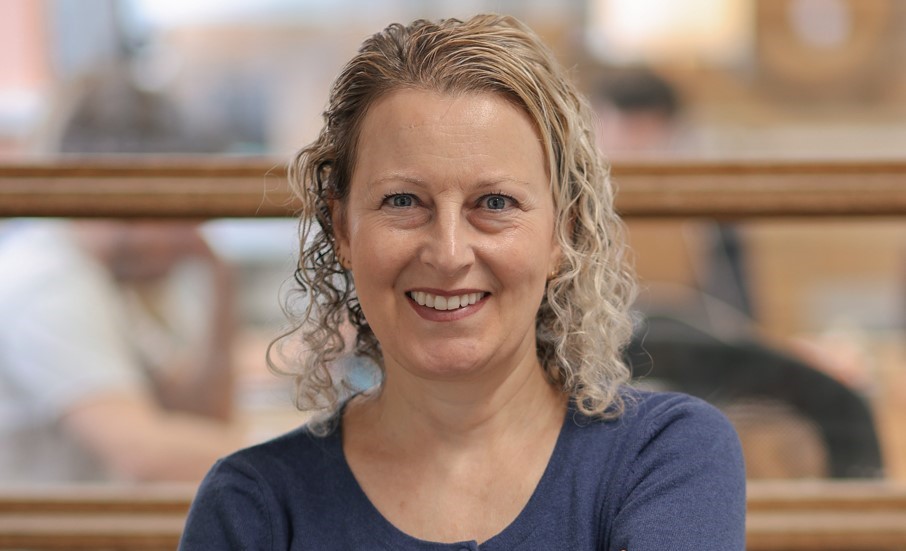New PtD deputy chair, Hilary Claire Frazer already is no stranger to the coalition: in 2020 she worked with PtD’s Theory of Change in Ethiopia and was impressed by PtD’s commitment to advocating for human resources (HR) for supply chain management (SCM). An international organisation development director with Mozen Consulting Ltd, she was part of the technical committee that designed and delivered the Global Indaba in Zambia in 2022.
What led you to apply for the position of PtD deputy chair?
I knew the position of deputy chair would be an opportunity to make a difference by contributing to PtD’s vision: that the health supply chain workforce be empowered and equipped to optimise health outcomes by improving access to health commodities. Bringing together 28 organisations in a coalition to realise this positive outcome is so valuable. Many of PtD’s tools and resources have been created owing to collaborations between organisations in the coalition, which is also a credible and powerful channel for PtD’s advocacy messages. In fact, I see PtD as the leading voice of the health supply chain workforce.
What is your number one priority?
This is really difficult, as there are so many interesting areas to cover! A good place to start is to take a fresh look at PtD’s strategic goals for the next two years, to make sure we continue working towards our expected outcomes and align closely with coalition members.
Specifically, we need to get PtD’s tools further out there: there are so many resources to support the supply chain workforce. Supply chain managers and decision-makers could benefit considerably if they were more aware of the resources on offer. We want to see the Theory of Change, the SCM professionalisation framework, STEP 2.0 and others being applied far more widely: they can make a real difference to health supply chain performance. Then everybody will be better off.
What do you think the health supply chain community should be talking about more?
For many years health SCM had been under recognised and overlooked. And then during the COVID-19 pandemic SCM really came to the fore, when access to commodities for health care became a universal issue. PtD advocates interventions with partners in the private and public sectors to keep SCM under the spotlight. By extending uptake of the SCM professionalisation framework, health SCM professionals are more likely to enjoy interesting and rewarding careers, as well as literally save lives. Advocating for qualified supply chain professionals by communicating their success stories can have the power to inspire others, as well as improve healthcare outcomes.
Which PtD tool do you want people to know about?
This is also challenging as PtD has so many excellent tools and resources so I want people to know about all of them! Having worked with the Theory of Change, I could talk enthusiastically about the benefits of using this as a framework for transformation and change for hours.
The STEP 2.0 programme, overseen by PtD, deserves special mention as a model of delivering results through a public/private partnership. It’s a great example of development partners – in this case PtD, Gavi, the Global Fund, the IFPW Foundation and USAID – collaborating to pool resources and share expertise. Right now with STEP 2.0, we’re seeing significant progress towards raising leadership capabilities within public health supply chains in a number of countries, which is really encouraging.
What’s coming up for PtD?
The first thing to mention is the PtD Global Indaba. Given the success of the conference in Zambia in October, and given the many calls for another, the Indaba technical committee has been meeting to decide the details of the next edition. We can confirm that there will be another Global Indaba! More information will be released in the coming weeks.
Later this year PtD’s supplement in the Global Health Science and Practice journal will be published. This set of ten papers will make the case for further investments in HR for SCM and will detail effective practices along the way.
Also this year the professionalisation hub will be established, which will position PtD as the central coordinator of professionalisation activities. PtD will manage and coordinate knowledge generated through the application of the SCM professionalisation framework in countries. In this role PtD will drive the professionalisation agenda by promoting and educating key stakeholders on the framework and implementation practices. Currently, professionalisation activities are underway in Nigeria, Rwanda and Mozambique.
STEP 2.0, meanwhile, is marching on: three cohorts will be working with private sector coaches in Ethiopia in March, April and May of this year on their transformation challenges.
Lastly, we’re on the verge of publishing Human resources & community health systems: Application of the PtD supply chain management theory of change in Liberia, which comes with a number of recommendations to improve the performance of community health workers at the last mile of the health supply chain.

